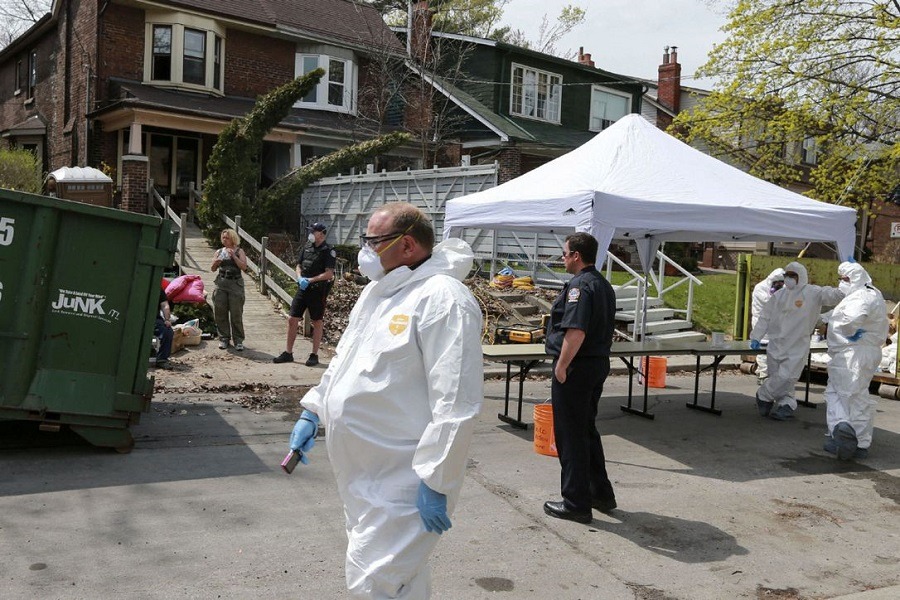VHA Occupational Therapist Catherine Chater comments about the issue of hoarding


Hoarding a vicious cycle without psychological support
The front porch of Dennis Cibulka’s Davisville home smells faintly of cat urine, the animals winding their way through piles of stacked boxes.
Clad in hazmat suits, fire officials spent days at the home last November, removing overflowing piles of paper, plastic, clothes and boxes.
It had been boarded up by the city, so full it was deemed a fire hazard. Cibulka was living on the porch.
As the number of boxes grows again, neighbours worry history is repeating itself.
In the Beaches, it already has.
Last week, fire officials, again in hazmat suits, cleared out a home on Beech Ave. In September, they had removed more than 50 cats.This time they removed “excess combustibles,” the garbage and household items filling more than one large disposal bin.
“It’s a vicious cycle,” says Josh Matlow, councillor in Cibulka’s ward.
And it’s not one that’s easily broken.
Officials can go into a home, clear it out and bring it up to code, but removing the buildup of clutter without providing any psychological or behavioural support usually ends in relapse, according to the Toronto Hoarding Coalition.
Meaning more boxes on Cibulka’s porch, more returns to the Beech Ave. home.
The city offered help, but Cibulka has rebuffed it and a psychiatrist hasn’t ruled him unfit to care for himself. In cases like his, there’s little the city can do to address the underlying causes.
That’s why Matlow wants the province to review the Mental Health Act — in part to ensure compulsive hoarding disorder is clearly addressed and to re-evaluate the rules around involuntary admission.
City council also approved SPIDER (the Specialized Program for Interdivisional Enhanced Response) last December to help departments co-ordinate, ensuring no hoarding issues go unchecked.
“It’s progress,” says Matlow, “it’s not success yet.”
He thinks a provincial review could help.
“I would never want to be a state that can just sort of put people into institutions,” he says, “but it’s clear to me that anyone who’s living this way, who’s got tons of paper and junk . . . and living outside on their front porch throughout a minus-20,-30 degree winter. I think it’s fair to question whether or not that person really does have the ability to take care of themselves.”
Cibulka refused to speak last week, but told the Star last November he was “a scavenger” not a hoarder. Fire officials disagreed.
Council agreed to ask the province to review the act when it approved SPIDER, but Matlow says the city hasn’t had a response. A spokesperson for the Ministry of Health says they have no record of the request.
Catherine Chater, an occupational therapist and resident specialist on hoarding at VHA Home Healthcare, part of the Toronto Hoarding Coalition, isn’t convinced changes to the Mental Health Act are the solution.
But renewed discussion can “do nothing but good,” she says.
Hoarding is an emerging field, only recently labelled its own unique disorder and affects somewhere between 2 and 6 per cent of the population.
There is no easy fix, Chater says, especially in more extreme cases where the person isn’t even aware of their inability to discard items to the extent their home is virtually unlivable.
“There’s only so much that can be done,” she says. “We all have the right to choose things that are risky for us and clearly that comes with a threshold and that’s not easily defined.”



